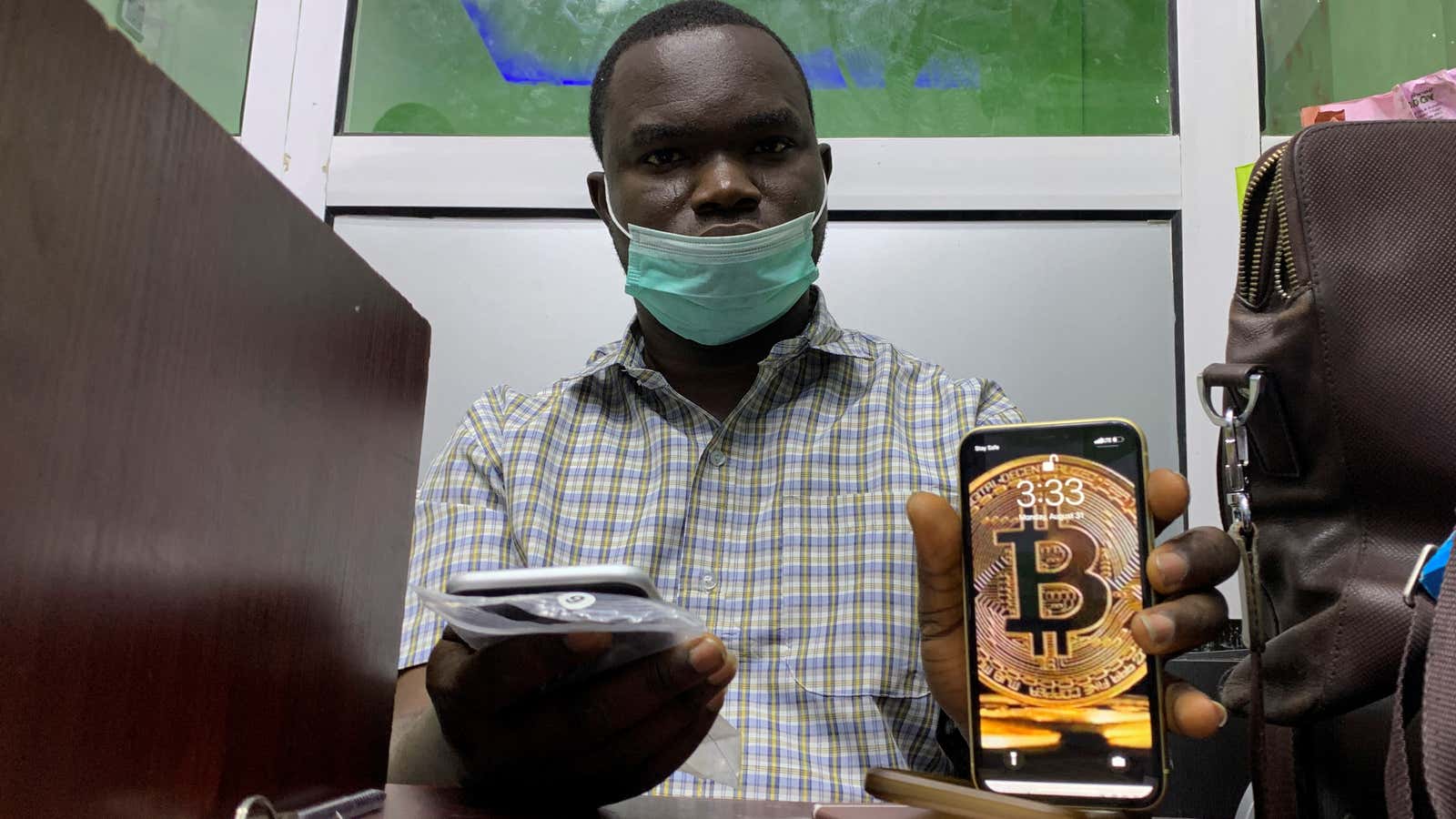Until it collapsed this month, FTX was becoming a force for normalizing cryptocurrencies in Africa, through marketing campaigns that enlisted entertainers, and investments in startups like Chipper Cash. Now that it has left a trail of losses for companies and individuals, Africa’s financial regulators will sense an opportunity to place stricter constraints on crypto’s adoption.
Some form of crypto regulation already exists in two-thirds of sub-Saharan countries, according to an IMF internal survey. Cameroon, Ethiopia, Lesotho, Sierra Leone, Tanzania, and the Republic of Congo have outright bans on crypto, while partial restrictions are in place in Zimbabwe and Liberia.
Last month, South Africa said every crypto platform must get a license to operate, beginning in July 2023. A 20% tax on crypto transactions is making its way through parliament in Kenya.
Nigeria, Africa’s top crypto market, is regulating too
Nigeria hasn’t banned crypto outright, although the central bank forbids banks from processing crypto transactions. In May, Nigeria’s Securities and Exchange Commission (SEC) ordered exchanges to register to obtain a permit to operate.
Following the fall of FTX, exchanges could now find themselves under renewed pressures. As of September, three crypto companies had filed to obtain the Nigerian SEC’s operation permit, according to an employee at one of the companies who declined to be named. Since FTX’s collapse, the SEC has cautioned the companies that they may have to supply still more information, the person said.
The Central Bank of Nigeria (CBN) supersedes the SEC in controlling the financial sector, so its moves are of more interest to crypto companies. But the CBN has been preoccupied by a dollar scarcity that has weakened the naira, leading to the launch of three new currency notes today by president Muhammadu Buhari as a way to fight inflation.
“Without stiff regulation, the future of the crypto industry will remain bleak—at best unpredictable,” Chimezie Chuta, a crypto and blockchain promoter, told Quartz, adding that FTX’s collapse would strengthen the CBN’s view that cryptocurrencies are only a medium for criminal activities.
The debacle surrounding FTT, the token issued by FTX, should force regulators to pay more attention to such assets as long as users hold and trade them as financial instruments with fiat money. “Let regulators treat every token as a security until proven otherwise,” Chuta said.
